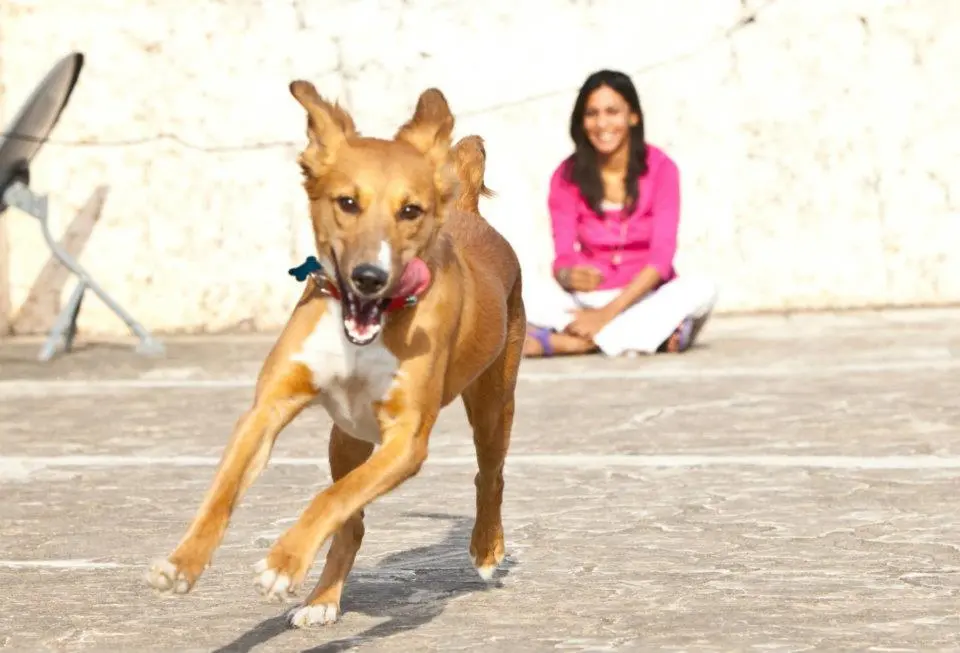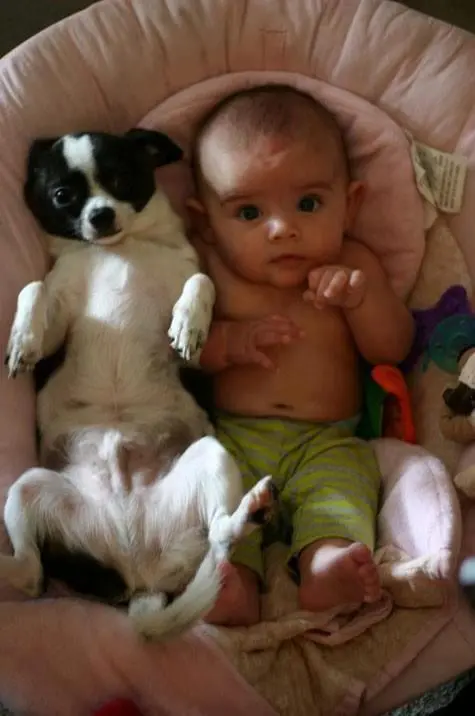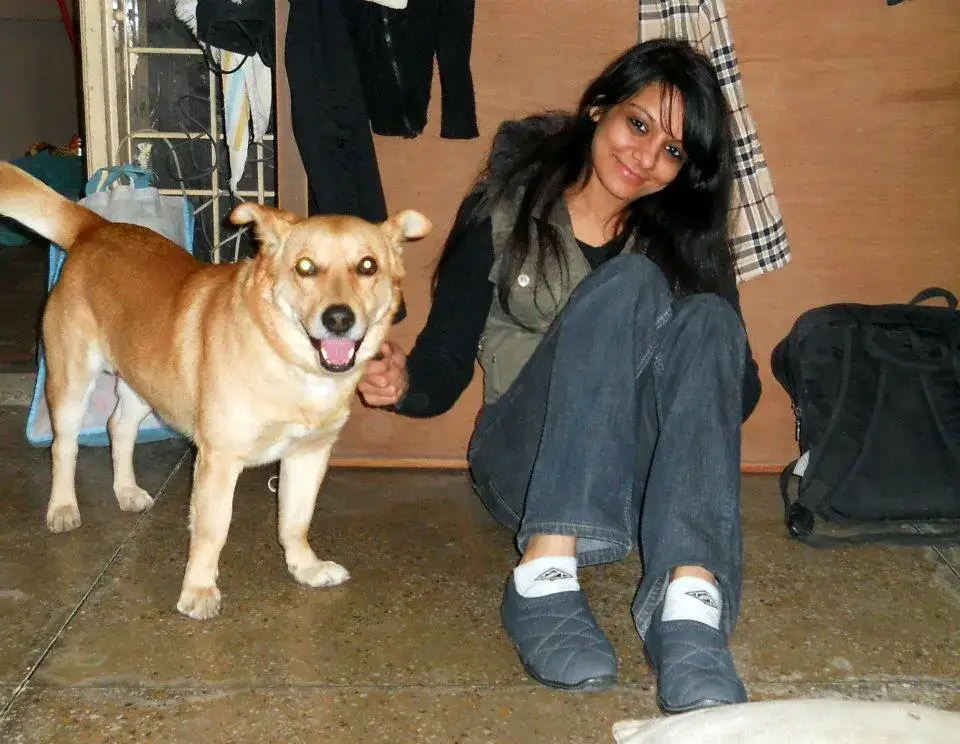Ever Heard Your Pup Chuckle Like a Cheeky Chipmunk?
Let’s face it, during playtime, our furry best friends erupt in some pretty hilarious sounds. Dogs make sounds like tiny tornadoes and breathy exhales that sound like laughter. It makes you wonder: can dogs actually laugh?
Science is unsure if dogs laugh like humans. However, we are discovering clues about what their playful panting means.
Unlike us, dogs lack the vocal cords needed for human-style laughter. But that doesn’t mean they can’t express joy vocally! Those fun pants and happy dances are their way of saying “yay!”

Hold on, is your pup a secret comedian?
We all know dogs are masters of playtime, but some furballs seem to have an uncanny ability to make us erupt in laughter with their goofy antics. Those playful lunges and hilarious zoomies might have you wondering – are they deliberately trying to be clowns?
The science behind canine comedy is still being unfurled, but research suggests our furry friends are pretty good at picking up on our happy vibes. When we laugh during playtime, it creates a positive and playful atmosphere that excites them too! Think of it as a feedback loop – our laughter fuels their playful spirit, and their silly antics keep us entertained.
And that sneeze-like sound they make during a good game of fetch? That’s actually a “play vocalization” some dogs use to signal to their doggy pals that it’s all fun and games, not a real fight. Kind of like a doggy handshake saying “Let’s keep this pawty going!”
The Tail Wags the Whole Truth [Dog Body Language] While that playful pant is a good starting point, a dog’s whole body is like a giant billboard advertising their emotions. Look for these signs of pure canine joy: Your dog is having a great time when they have a relaxed posture, wiggly body, and a tail wagging happily.
Ever noticed your dog’s eyes get bright and playful during a good game of fetch? Dilated pupils can often signal excitement in our furry friends. Just like us, some dogs might flash a relaxed grin when they’re feeling playful and content.
Do Dogs Understand Human Laughter?

Studies show our canine companions are whizzes at sensing human emotions. They can sniff out happiness and sadness through our voices, facial expressions, and even our scent! This understanding might explain why some dogs seem to “laugh along” with us. They may not be laughing at the joke, but instead reacting to our positive vibes and the fun atmosphere.
Laughter is a powerful tool for strengthening the bond between humans and their playful dogs. It doesn’t matter if the laughter comes from a person or a dog. It helps to create a strong connection between us and our furry best friends.
Our canine companions are more in tune with us than we might think! A study at Eötvös Loránd University in Hungary used fMRI scans to reveal that dogs can actually detect human emotions like happiness and sadness. The scans showed increased blood flow in certain brain regions, indicating heightened activity. This is similar to how our own brains work!
Even cooler, dogs have dedicated areas in their brains specifically for processing dog barks and human voices. It’s a testament to the incredible way dogs have adapted to living alongside humans – their bodies and minds have changed to deepen our connection! This adaptation even extends to their digestive systems – unlike their wild wolf ancestors who are primarily carnivores, dogs have become omnivores, able to thrive on a wider range of foods we share with them.
While that infectious giggle after a good belly rub might seem like your dog is mortified, science suggests otherwise. Dogs can differentiate between positive emotions like laughter and negative ones like sadness. However, the complex social cues involved in understanding “being laughed at” versus “laughing with” are likely beyond their comprehension.

Picture courtesy: Divya
Can dogs laugh?
A groundbreaking study by animal behaviorist Patricia Simonet of Sierra Nevada College has shed light on canine communication. Simonet documented a distinct panting sound emitted by dogs during play, featuring a wider frequency range than regular panting. This characteristic, she proposes, suggests it could be a form of dog laughter.
Further investigation involved playing these recordings to puppies, who exhibited increased activity in response. Interestingly, the sounds also appeared to have a calming effect on shelter dogs.
But hold on, are our furry friends secret comedians? The answer might surprise you! Dogs are surprisingly adept at picking up on human emotions. They recognize that laughter signifies joy and playfulness, both positive experiences they crave. Laughter also reduces stress and fosters a stronger human-animal bond. So, depending on your pup’s comedic repertoire, they might just be pulling out all the stops (think goofy antics and playful nudges) to elicit a giggle from their favorite human.
However those smiling dog pictures from social media are a different thing. But here’s the thing: unlike humans, dogs don’t smile in the same way. There’s a canine version of a grin! This happy expression involves an open mouth, relaxed lips pulled back, and sometimes a tongue lolling out. It typically appears when your dog feels content and playful.
Here’s a fun fact: this “dog smile” might even be a reflection of us! Studies suggest a phenomenon called “laughter contagion,” where dogs may mimic our smiles, further strengthening the happy bond between you and your furry friend.
What does a dog laugh sound like?
While laughter universally signifies amusement, the way different species express it can vary greatly. Humans erupt in voiced “ha ha” sounds, but deciphering dog laughter requires a deeper look into canine communication.
Forget vocalizations! Dog laughter manifests as a unique panting sound, distinct from regular panting due to its broader frequency range. Imagine a breathy “hhuh hhah” instead of the rapid panting your pup does after a hot day.
Here are some tips to get that playful dog panting party started:
Engage in games of fetch, tug-of-war, or other interactive activities that get your pup moving and grooving.
Get Silly! High-pitched tones, playful banter, and a little goofiness can encourage a playful response from your dog.
Physical touch and positive reinforcement are a recipe for doggy happiness.
So, the next time you hear your pup’s playful pant, remember, it might just be their way of saying they’re having the time of their life. And that, my friends, is a sound worth celebrating!
